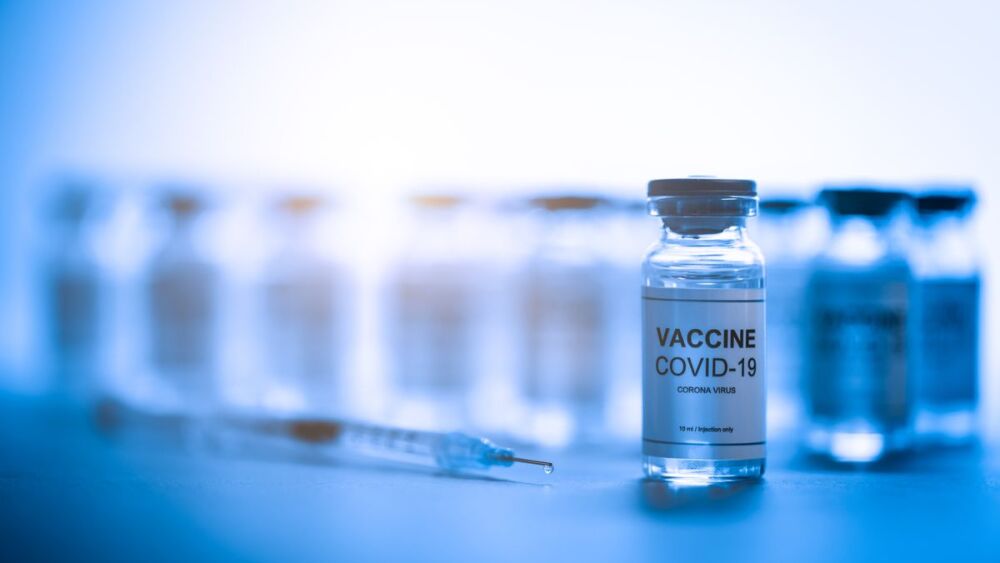By Peter Boylan
The Honolulu Star-Advertiser
HONOLULU — The state Department of Public Safety, or PSD, announced Thursday that it will pay $50 to certain inmates who get fully vaccinated against COVID-19. The effort is among several across the country that aim to help increase inoculation rates in prisons and jails, which are dangerous breeding grounds for communicable diseases.
Hawaii inmates incarcerated on or after March 3 who are still in custody are eligible. Some 2,530 inmates in Hawaii and at the Saguaro Correctional Center in Arizona qualify. The money will be deposited into the inmate’s spendable trust account.
The department received $615,000 in federal funds from the American Rescue Plan Act of 2021 to pay for the program. This incentive payment, which is not available to state employees, is scheduled to continue through Dec. 31, 2024.
“PSD is doing everything it can to educate inmates about the vaccine and encourage everyone to get vaccinated,” said Tommy Johnson, PSD deputy director for corrections, in a statement. “We’ve seen a substantial increase in inmate vaccinations that we believe is a result of our education efforts. It is our hope that inmates who are still on the fence about getting vaccinated will participate.”
Incentives for prisoners are being used across the country in an effort to bump up vaccination rates in correctional facilities where crowded conditions and transient populations have made it difficult for officials to control outbreaks and clusters.
In New York the state’s nearly 34,000 inmates have been offered incentives such as $75 care packages consisting of food from commissaries, a barbecue for their cellblock, and eligibility to be among the first cleared for resumption of conjugal visits, according to the New York Post. In New Jersey an inoculation might get 10 days off their sentence, according to NJ.com.
The Maryland Department of Correctional Services and Public Safety has offered care packages made up of a mix of 24 available food items including rice, tuna, cookies, crackers and chips. In May about 70% of the state’s 18,000 inmates had received at least one dose of the vaccine, The Baltimore Sun reported.
As of mid-September 66% of Hawaii inmates were fully vaccinated. State Sen. Clarence Nishihara, chairman of the Senate Committee on Public Safety, Intergovernmental, and Military Affairs, said he’s hopeful that the PSD effort will encourage more inmates to accept the vaccine. State government as well as businesses and various organizations have offered incentives to prompt employees, residents and others to get vaccinated.
“They (PSD ) have been trying to encourage inmates as well as the staff to do it. It protects everybody if they get their numbers up,” Nishihara told the Honolulu Star-Advertiser.
According to the department, nine inmates had died and 2,863 inmates had been infected and recovered from COVID-19, with 14 active cases in nine facilities that house Hawaii prisoners. Corrections staff have recovered from 382 infections, with 11 active cases.
PSD continues to educate and encourage corrections staff and inmates about the vaccines that are offered daily, anytime an inmate requests it, and to all new intakes. Sign-up sheets are posted in each housing unit, and health care staff members frequently ask inmates whether they would get vaccinated, especially if they are scheduled for release.
At intake, inmates are required to watch a 10-minute COVID-19 educational video that includes instruction on infection prevention measures, detailed hand-washing procedures and information about vaccinations.
On Oct. 12 the state Supreme Court denied a third request by the Office of the Public Defender to release certain classes of prisoners early to help alleviate overcrowding and slow the spread of the virus.
Of about 650 inmates released in 2020, 50 were arrested again. That 8% recidivism rate was significantly below the roughly 50% average rate for inmates released on probation prior to the pandemic.
In New York, incentivizing prisoners to get vaccinated has prompted corrections officers to question whether they too should be eligible for an incentive offer of some sort.
“We’re in those facilities 24 /7. I know it’s a personal choice to get vaccinated, but that may have gone a bit further for us had that incentive been offered to us,” Michael Powers, president of the New York State Correctional Officers and Police Benevolent Association, told HudsonValley360.com in a July interview.
According to the New York Department of Corrections and Community Supervision, the COVID-19 vaccine has been made available at all 50 of its facilities, and by late July some 15,195 inmates, or 46% of the incarcerated population, had received shots.
Another incentive has been offered through the department’s Family Reunification Program, which “provides approved incarcerated individuals and their families the opportunity to meet for a designated period of time in a private home-like setting.” The meetings have been made available only to vaccinated inmates.
(c)2021 The Honolulu Star-Advertiser












